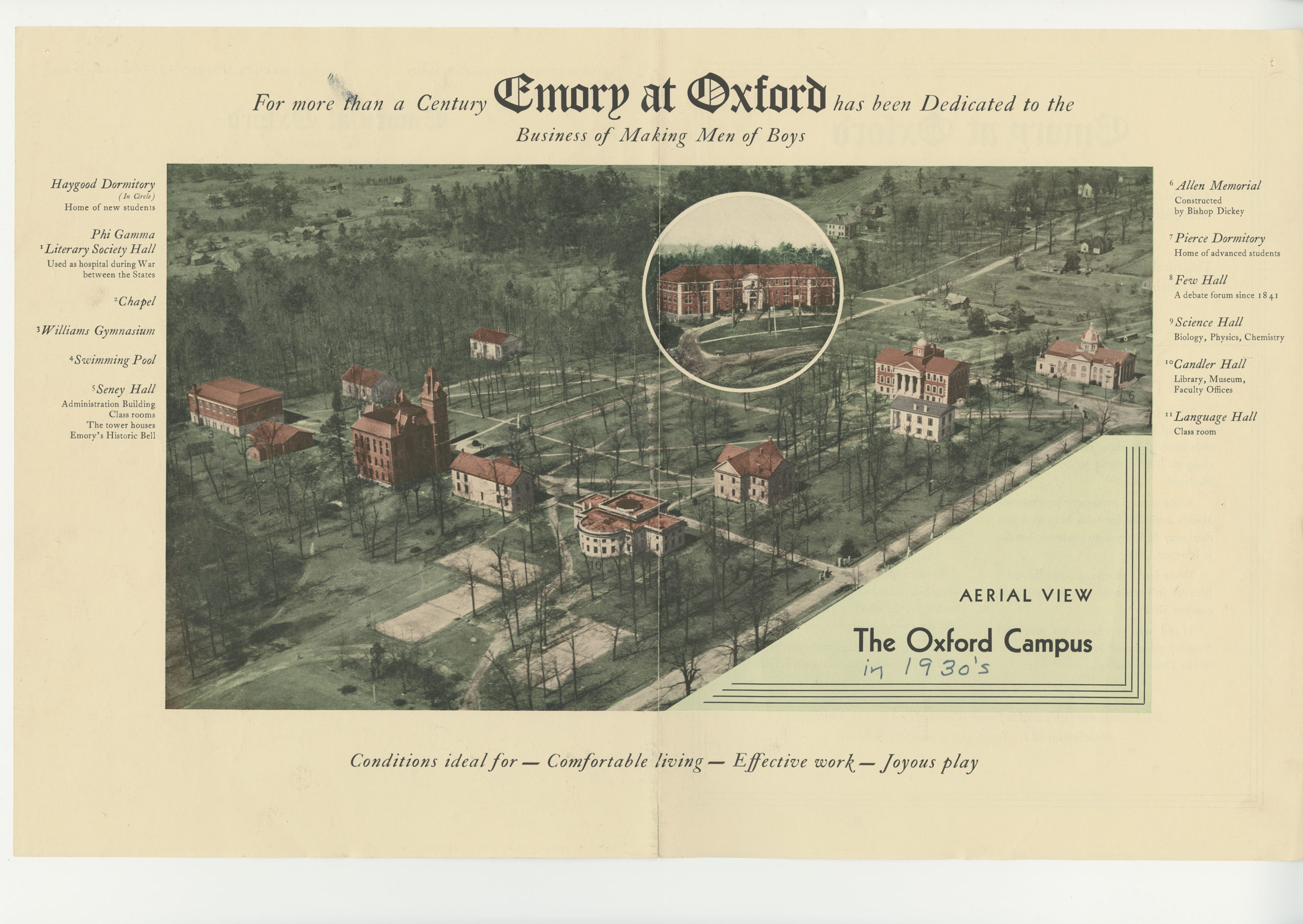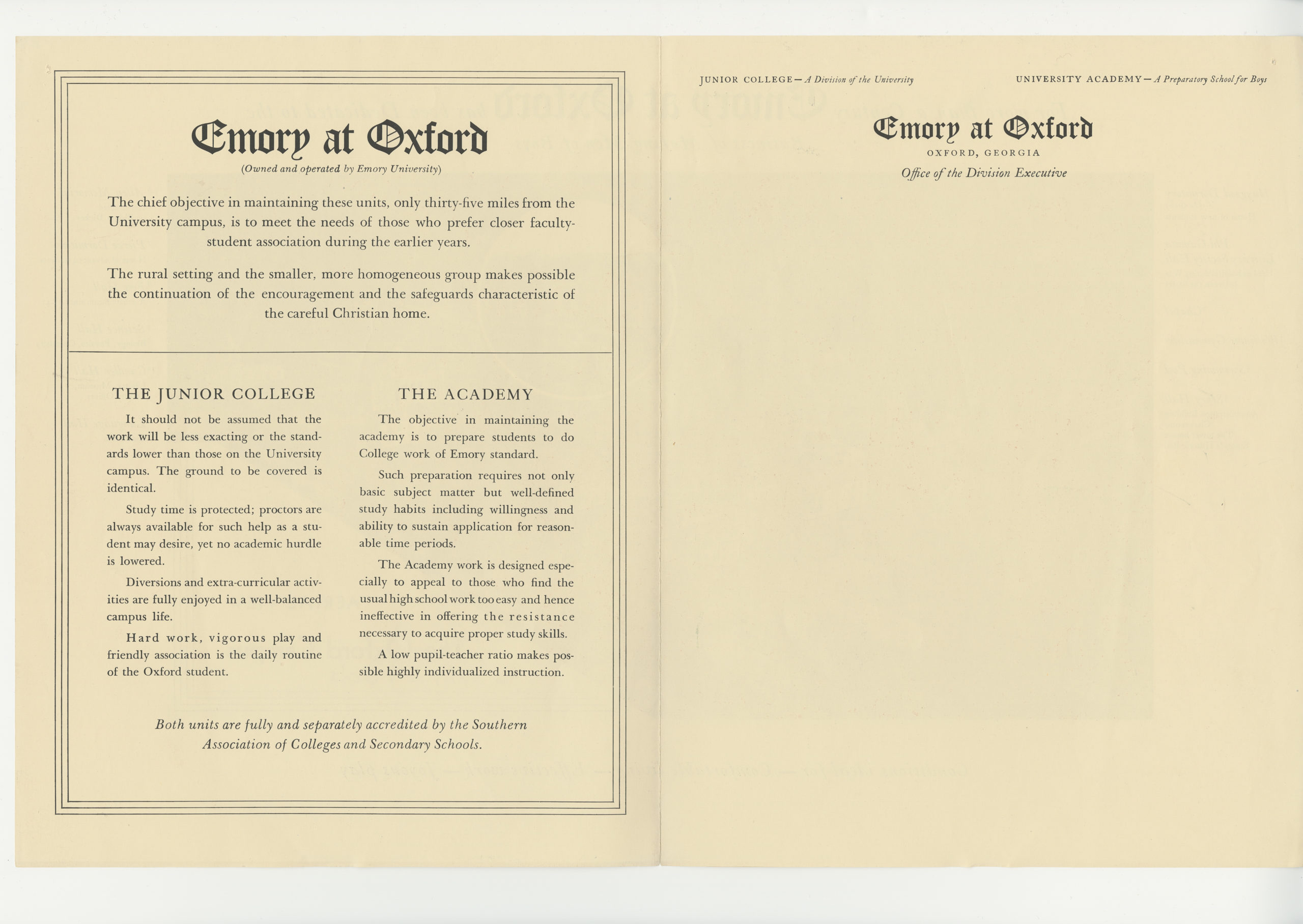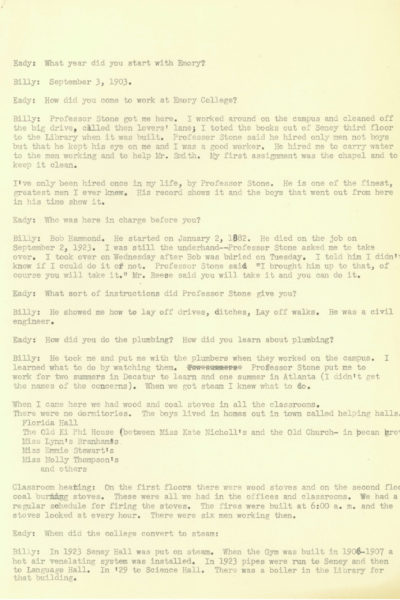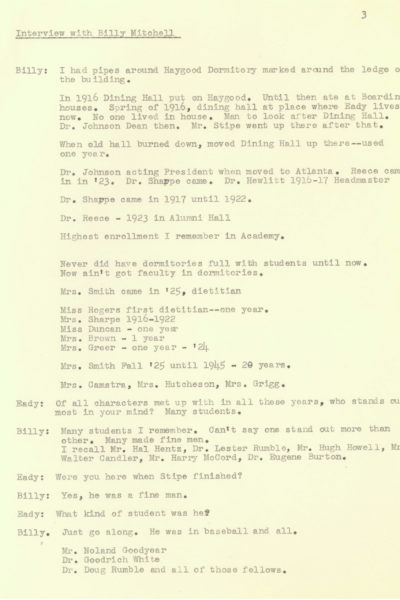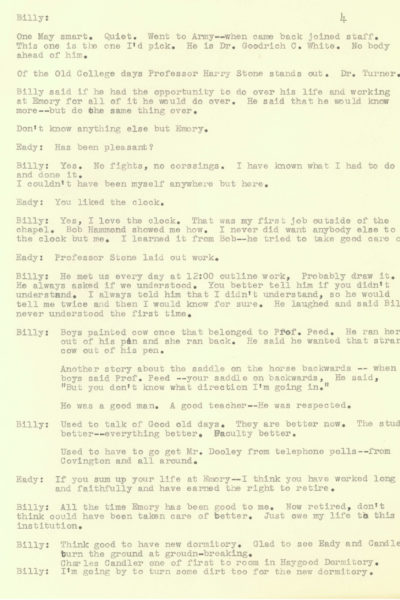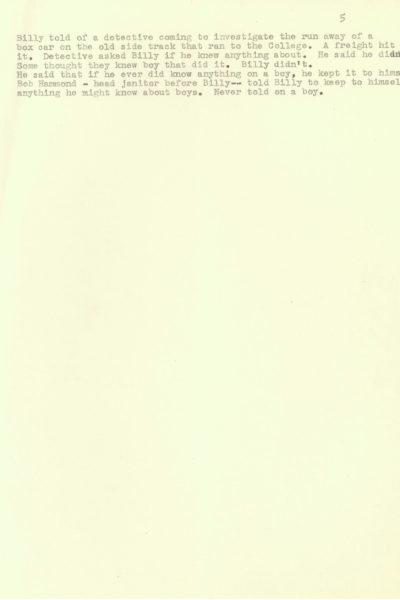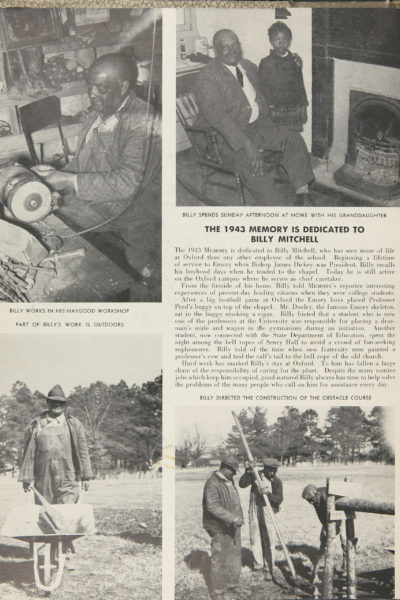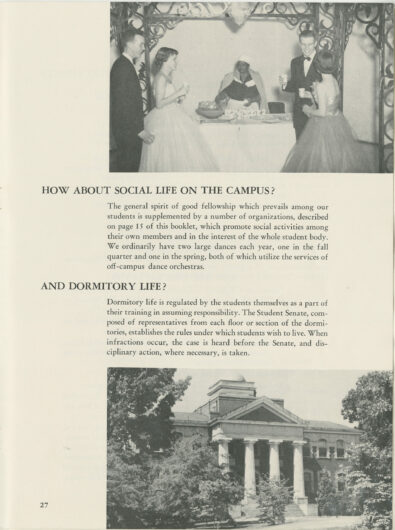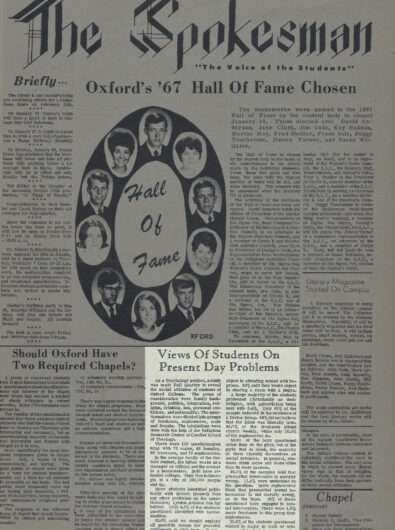a gap in the historical record resulting from the unintentional or purposeful absence or distortion of documentation
– Society of American Archivists Dictionary of Archives Terminology
Creating Institutional Identities
While events depicted in this exhibition are presented in chronological order, that chronology does not represent a cohesive or inclusive narrative. Examining the content of the Oxford College archives, along with placing it in context as material collected by a small number of predominantly white staff, is critical to understanding the gaps in these collections.
These absences in Oxford College records are indicative of both a historic lack of representation of people of color across campus, and the lack of a concerted effort to preserve their stories. There are very few images, manuscripts, or other records of people of color on the Oxford College campus prior to the integration of its student body, and those that do exist are often described in such a way that a researcher would not immediately identify them as containing content relating to or created by people of color.
As you explore the items below, think about the following questions:
- What do you think the make-up of the student body of “Emory at Oxford” was like? What about the faculty and staff?
- How might the interview with Henry “Billy” Mitchell have been different it if were conducted by an outside interviewer?
Explore
“The careful Christian home”
The brochure below served as a student application form and notification of acceptance. While this copy was distributed in 1948, the format was used multiple times. Introductory text promotes the Oxford campus in contrast to the Atlanta campus of Emory University.
“The rural setting and the smaller, more homogeneous group makes possible the continuation of the encouragement and the safeguards characteristic of the careful Christian home.”
Emory at Oxford brochure, 1948
Oxford College recruitment brochure and application form.
Oxford College, historical information (1 of 2), 1930s-1986, undated, Box: 21, Folder: 1. Oxford Local History collection, Manuscript Collection No. 004. Oxford College Archives. https://archives.libraries.emory.edu/repositories/6/archival_objects/474210
Henry “Billy” Mitchell
Henry “Billy” Mitchell, who retired as head repairman and groundskeeper of Oxford College, worked on the Oxford campus for 53 years. The 1943 edition of the Memory, the Oxford College yearbook, is dedicated to Mitchell. Near the end of his career, Mitchell provided an oral history of his experience working at Oxford College. Over several pages, Mitchell describes his work and relationships with coworkers and students. The interview was used as the basis of a feature article celebrating his 50th year with the college in the March 1953 issue of the Emory Alumnus magazine.
Billy Mitchell interview, 1953
Interview with Billy Mitchell by Dean Eady.
Mitchell, Billy, 1953, 1958, Box: 7, Folder: 7. Oxford Local History collection, Manuscript Collection No. 004. Oxford College Archives. https://archives.libraries.emory.edu/repositories/6/archival_objects/473839
Memory, 1943
Dedication of the 1943 Oxford College yearbook to Billy Mitchell.
Memory [1943]. Emory University Yearbooks. Oxford College Archives. https://digital.library.emory.edu/purl/764gmsbcq1-cor.
“Way Down South in Dixie”
The theme of “Way Down South in Dixie” appears throughout the 1952 edition of the Memory. The endpapers, portraits of posed and costumed students, and general tone repeatedly reference the Confederacy. College recruitment material distributed widely during this time included an image of a Black woman serving white students at a college party. Both publications were produced during the early 1950s, amid growing white resistance to desegregation.
In 1967, two years before the first Black students to attend Oxford College were admitted, survey responses from a class project published in the Oxford Spokesman indicated only 14.3% of 119 students asked were opposed to attending school with Black students. However, 59% said they would object to sharing a room with a Black student.
Content Warning
The tabs above include materials related to Emory University’s past involvement in slavery, as well as racist imagery and outdated language which could be traumatic to viewers.
Memory, 1952
Excerpts from the 1952 Oxford College yearbook.
“Memory 1952,” 1952, Emory University Yearbooks, Oxford College Archives, Oxford College Library, Emory University. https://digital.library.emory.edu/purl/665h9w0w3z-cor.
“Education is the Key!” brochure, 1950s
Excerpt from Oxford College recruitment publication.
Emory at Oxford, “Education is the Key!” 1952-1957, Box: 2, Folder: 5. Office of Academic Affairs records, Series No. 010. Oxford College Archives. https://archives.libraries.emory.edu/repositories/6/archival_objects/475699
Spokesman, January 1967
Article on student poll including questions about Black students attending Oxford College.
“Views of Students on Present Day Problems” January 1967, Spokesman, Oxford College Archives, Oxford College Library, Emory University. https://digital.library.emory.edu/purl/7547pvmdrw-cor.


